Kayla Schneeweiss-Keene of the Mann Eye Institute is now a TASCS board member!
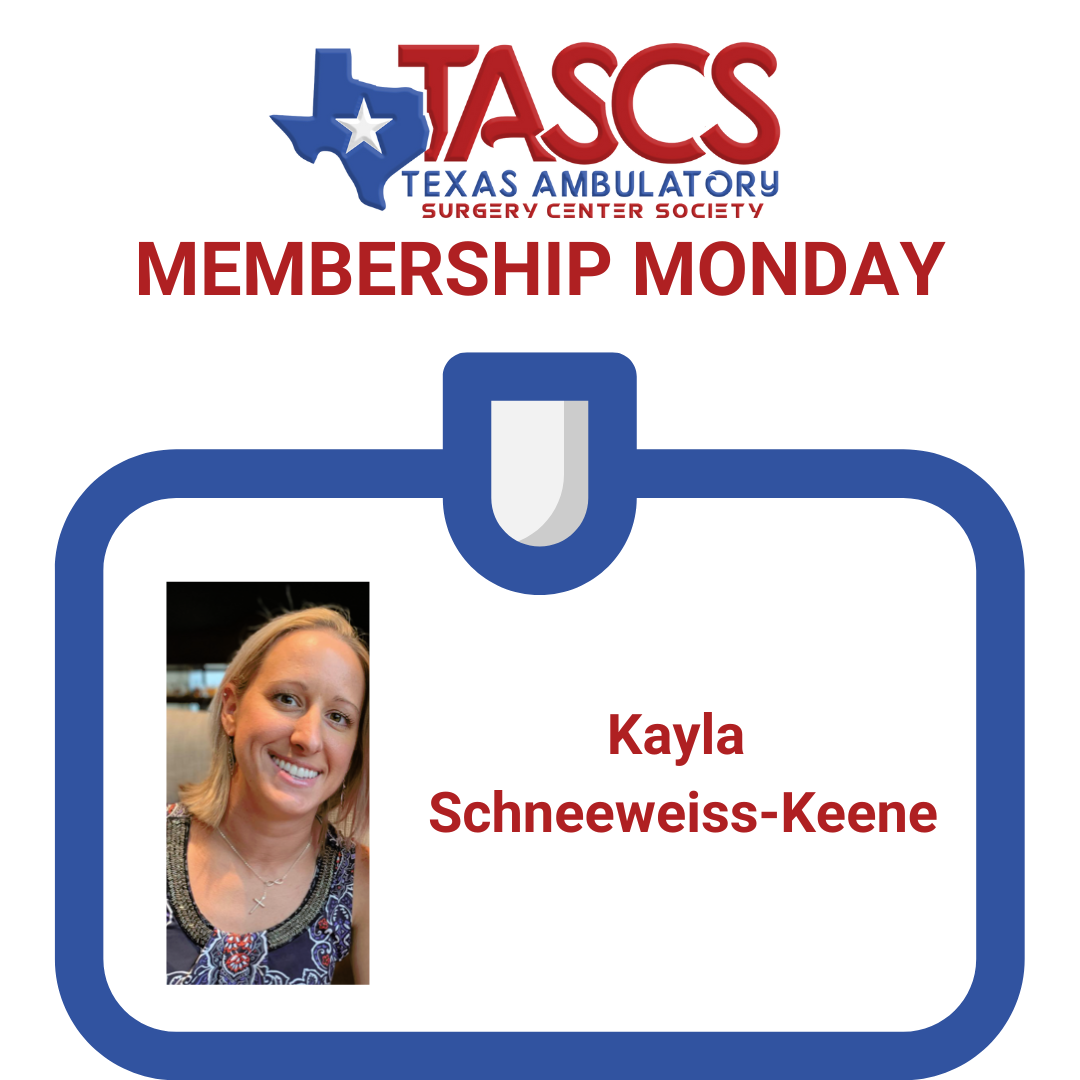
The Texas Ambulatory Surgery Center Society is proud to have Kayla Schneeweiss-Keene as a new board member.

The Texas Ambulatory Surgery Center Society is proud to have Kayla Schneeweiss-Keene as a new board member.

When the COVID-19 pandemic started, we saw a limited number of go-to items, ranging from stores running out of toilet paper to healthcare facilities running out of face masks. Fast forward a couple of years, and we are noticing other products being out of stock and/or taking longer to ship to us, and this includes pharmaceuticals.
At the time of writing, the list of FDA Drug Shortages includes 122 medications, while the American Society of Health-System Pharmacists (ASHP) Drug Shortages List has 223.

The ASC Quality Collaboration (ASCQC) is dedicated to advancing high-quality, patient-centered care in ambulatory surgery centers. This is a collaborative effort between the ASC industry, professional associations, ASC management companies, and health IT companies.
Before the annual conference, the TASCS team visited NW Surgery. Founded by a physician in 1999, it is one of the longest-standing, independent, physician-owned surgery centers in Houston.
Pharmacy management is a key component to ambulatory surgery centers. It offers centers a guide on realistic ways to comply with regulations and helps improve efficiency with medication processes. That efficiency gives nurses more time at the patient’s bedside to give them the high-quality care they deserve. Amy Jones of Jones Premier Pharmacy Consulting and the director of pharmacy at St. David's South Austin Medical Center spoke to TASCS members about how pharmacy management can improve multimodal pain management, infection prevention, and patient satisfaction.
The pain experience for patients is complex, Jones said, and so surgery centers need to incorporate multiple pathways to relieve pain. ASCs should consider pharmaceutical, non-pharmaceutical, and even environmental methods, such as dimming lights to help make patients more comfortable.

The No Surprises Act has changed how medical professionals work and care for their patients. Chris Finelli, HST Pathways’ vice president of business development, shared with the Texas Ambulatory Surgery Center Society (TASCS) the main attributes of the act that went into effect on January 1, 2022.
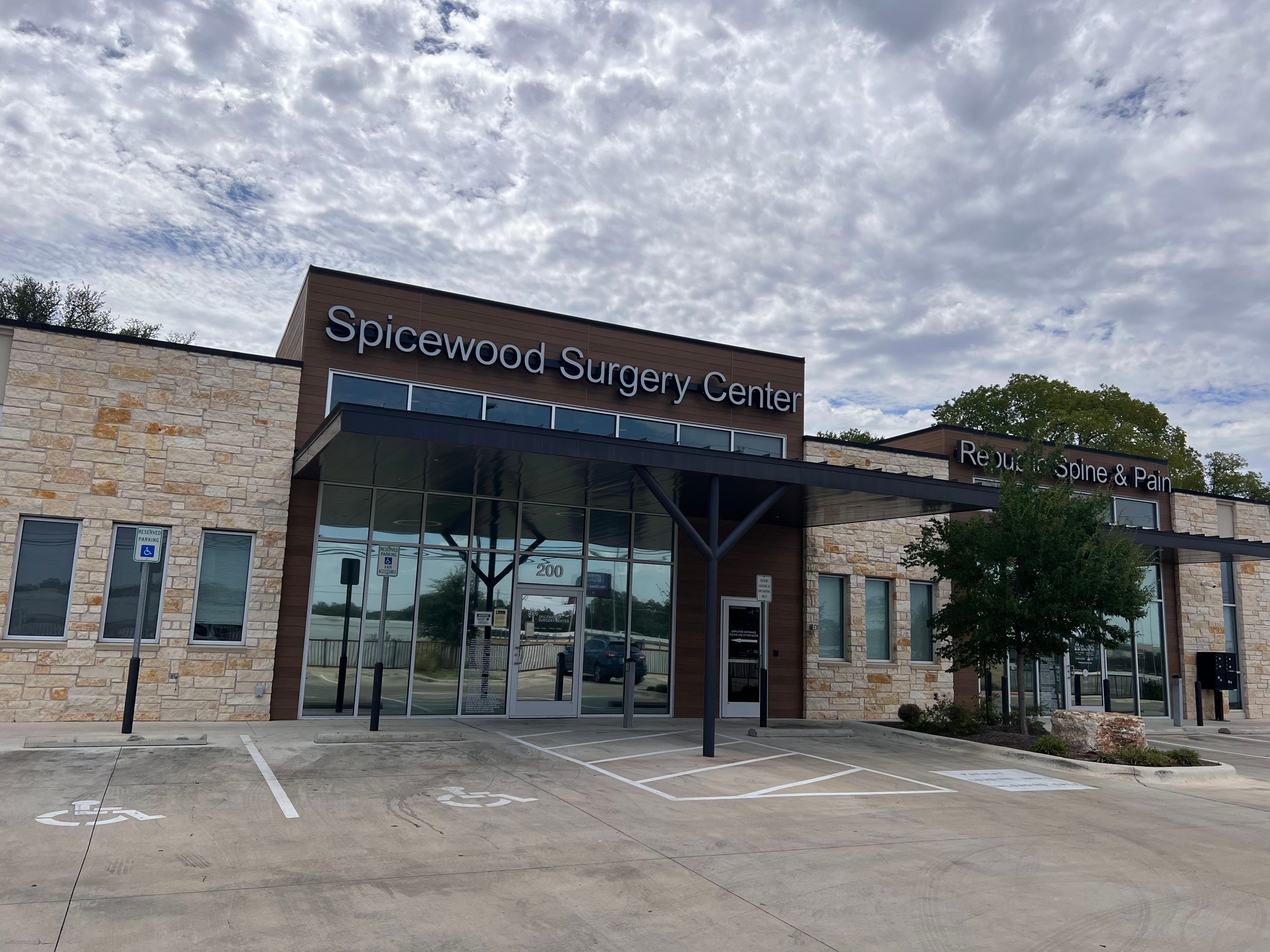
On July 22, the TASCS team visited Spicewood Surgery Center in Austin, which opened in December 2019. From the welcoming front office to the attention to detail, this single-specialty facility focuses on customized care that helps to improve patients' quality of life.
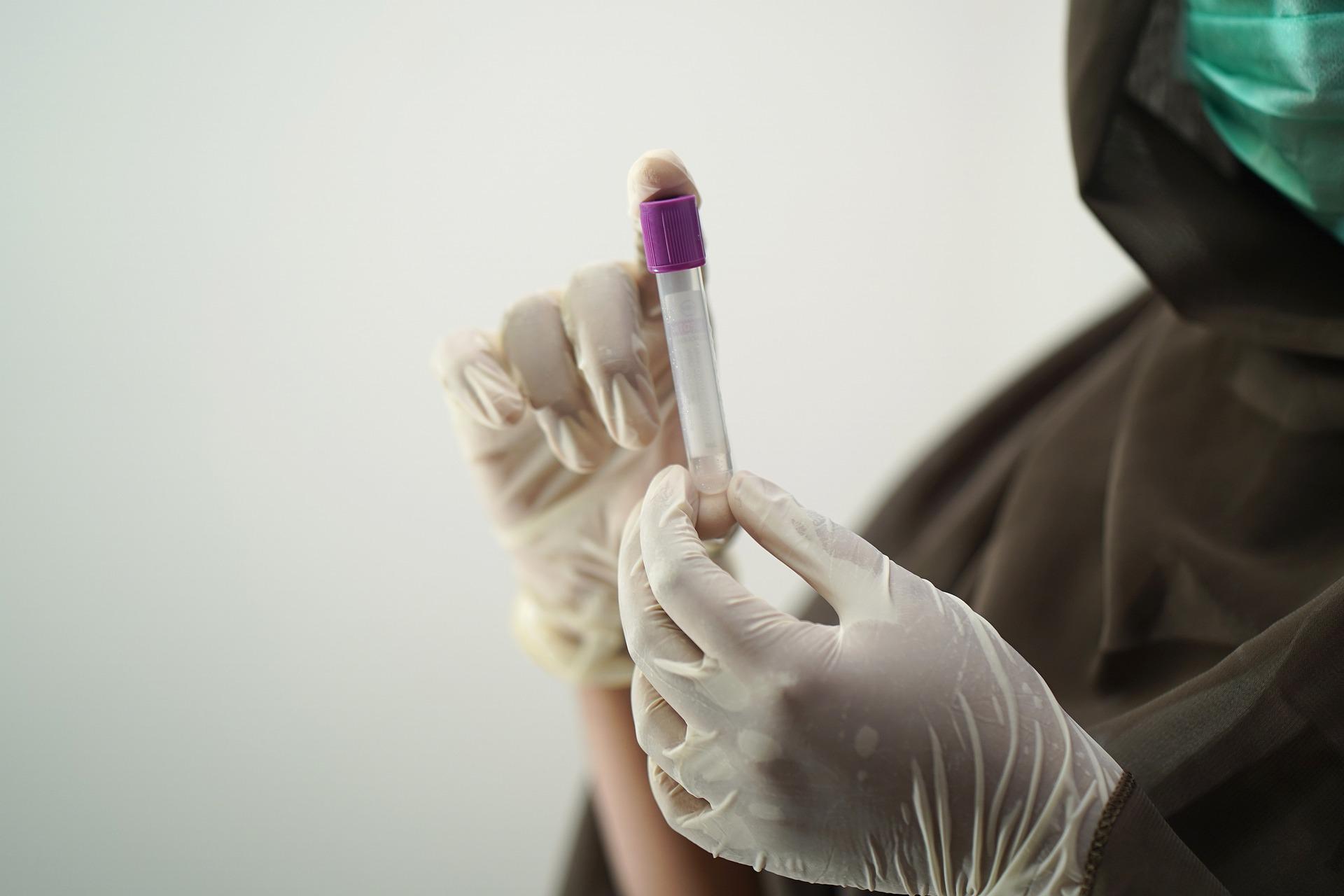
The relationship between ambulatory surgery centers (ASCs) and laboratory / pathology centers is crucial to providing the best service to patients. Matt Thompson, CEO of Clinical Pathology Associates, met with Texas Ambulatory Surgery Center Society (TASCS) members to share key points on what to look for when selecting the best lab and path centers for partnership.

The Texas Ambulatory Surgery Center Society (TASCS) has seen significant growth and success in its ambulatory surgery centers (ASCs). Because of this, members recently collaborated on a checklist and template that supports ASCs as they embark on a journey of growing, expanding, and building new facilities.
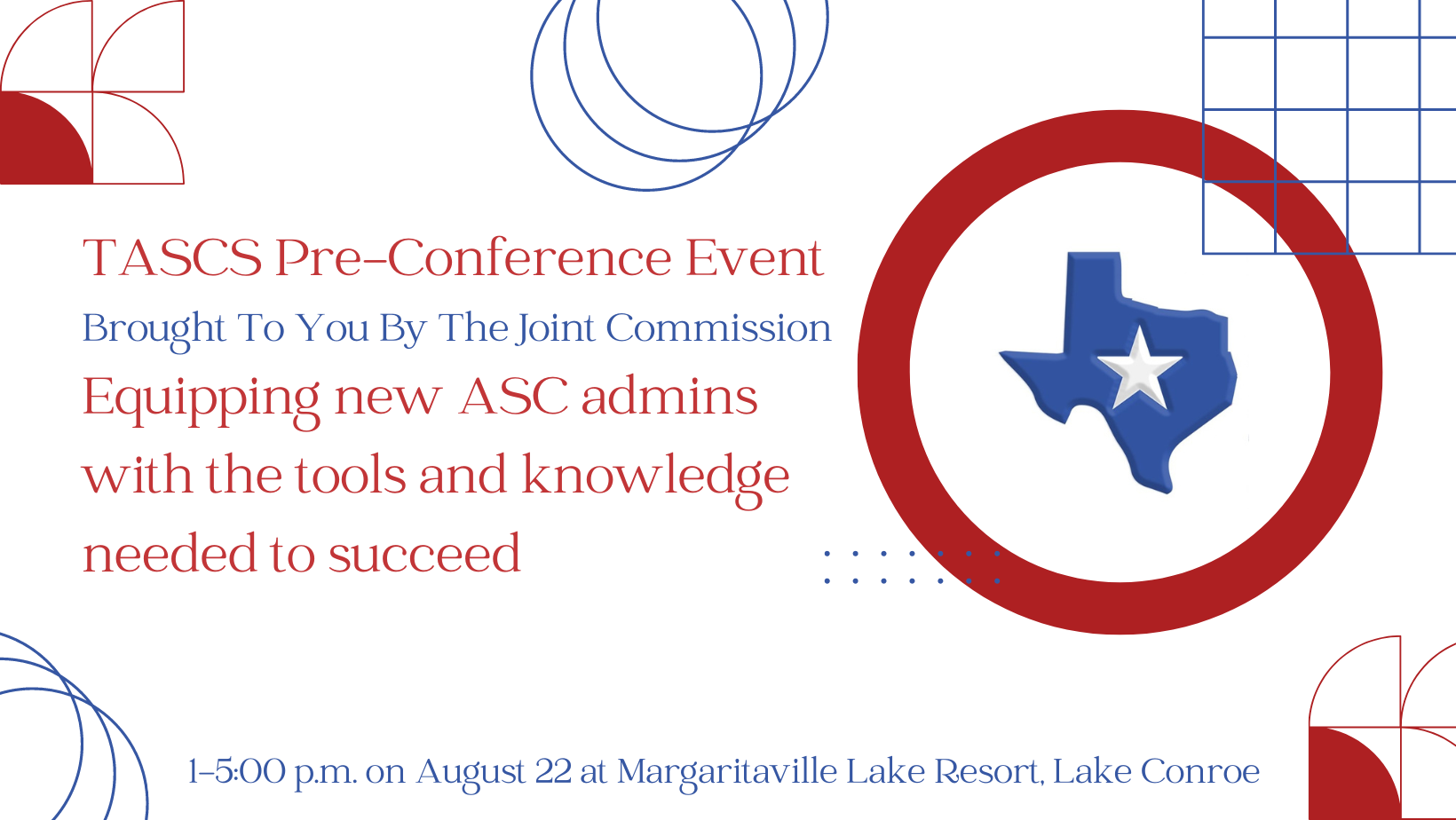
The Texas Ambulatory Surgery Center Society’s (TASCS) annual conference is all about providing education, networking, learning, and marketing opportunities to the ambulatory surgery center industry, and we want to make sure all new ASC administrators have the tools and knowledge needed to succeed.
This summer, TASCS is visiting ambulatory surgery centers throughout Texas. The goal is to learn even more about these facilities and, by shining an even brighter spotlight on them, to continue spreading awareness about the growing ASC industry.

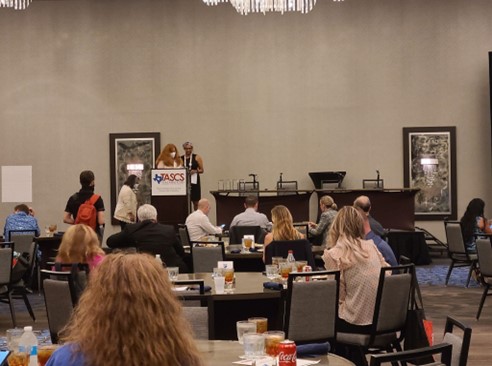 The Texas Ambulatory Surgery Center Society (TASCS) has spent over 10 years bringing healthcare professionals together, providing them with educational information, networking opportunities, and updates on ambulatory surgery center (ASC) developments. This year, attendees can pack their favorite Hawaiian shirts for the TASCS annual conference, taking place at Margaritaville Lake Resort in Lake Conroe from August 22 to 24.
The Texas Ambulatory Surgery Center Society (TASCS) has spent over 10 years bringing healthcare professionals together, providing them with educational information, networking opportunities, and updates on ambulatory surgery center (ASC) developments. This year, attendees can pack their favorite Hawaiian shirts for the TASCS annual conference, taking place at Margaritaville Lake Resort in Lake Conroe from August 22 to 24.
The conference will feature several opportunities for continuing education credits for AEUs, ICPs, and CNEs, as well as offer panels over accreditation, healthcare policies, leadership in surgery centers, and more.

Every year, the Texas Ambulatory Surgery Center Society (TASCS) gathers the ambulatory care industry together at its annual conference, and this year, the education, networking, learning, and marketing opportunities will take place at Margaritaville Lake Resort, Lake Conroe | Houston.

The first stop on the TASCS Summer Road Trip Series was North Pines Surgery Center in Conroe, Texas. Here, TASCS Executive Director Krista DuRapau and Membership & Events Manager Jennifer Schlabach met with Tammy Stanfield, the facility’s administrator and a TASCS member.
When COVID-19 began to run rampant in 2020, the healthcare system struggled to handle the pandemic’s force. “I joke with people often that a couple years ago, before the pandemic, not many people thought much about supply chain, and now, it’s all anybody can think about,” said Nate Mickish, president of OnHand and vice president of Texas Health Resources. From nurses to masks, everything was in shortage, and vendors and providers alike were scrambling to offer healthcare workers everything they needed to stay safe on the job.
“We may have missed savings goals, we have not gotten all the contracts implemented that we want, but we kept people safe.” Mickish said. “That was the most important metric we could have met in 2020.”
The Texas Health Care Information Collection (THCIC) collects data and reports on healthcare activities, in order to provide patients with information about the cost and quality of healthcare in Texas. All ambulatory surgery centers in the state are required to report data related to revenue, services, and procedures. Tiffany Overton, training specialist for THCIC, went over the schedule for data reporting with TASCS members, as well as the significance of submitting timely and accurate information.
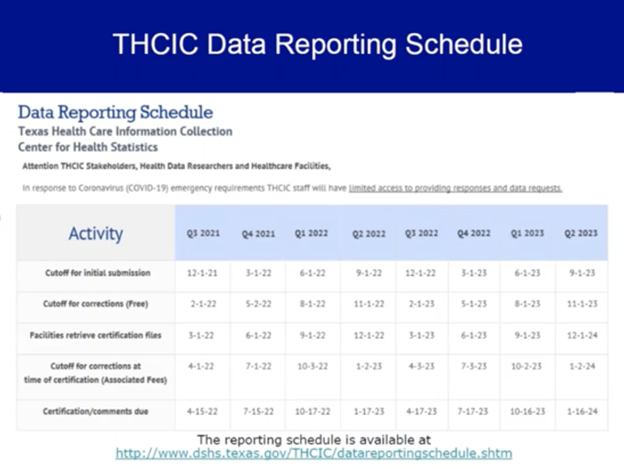

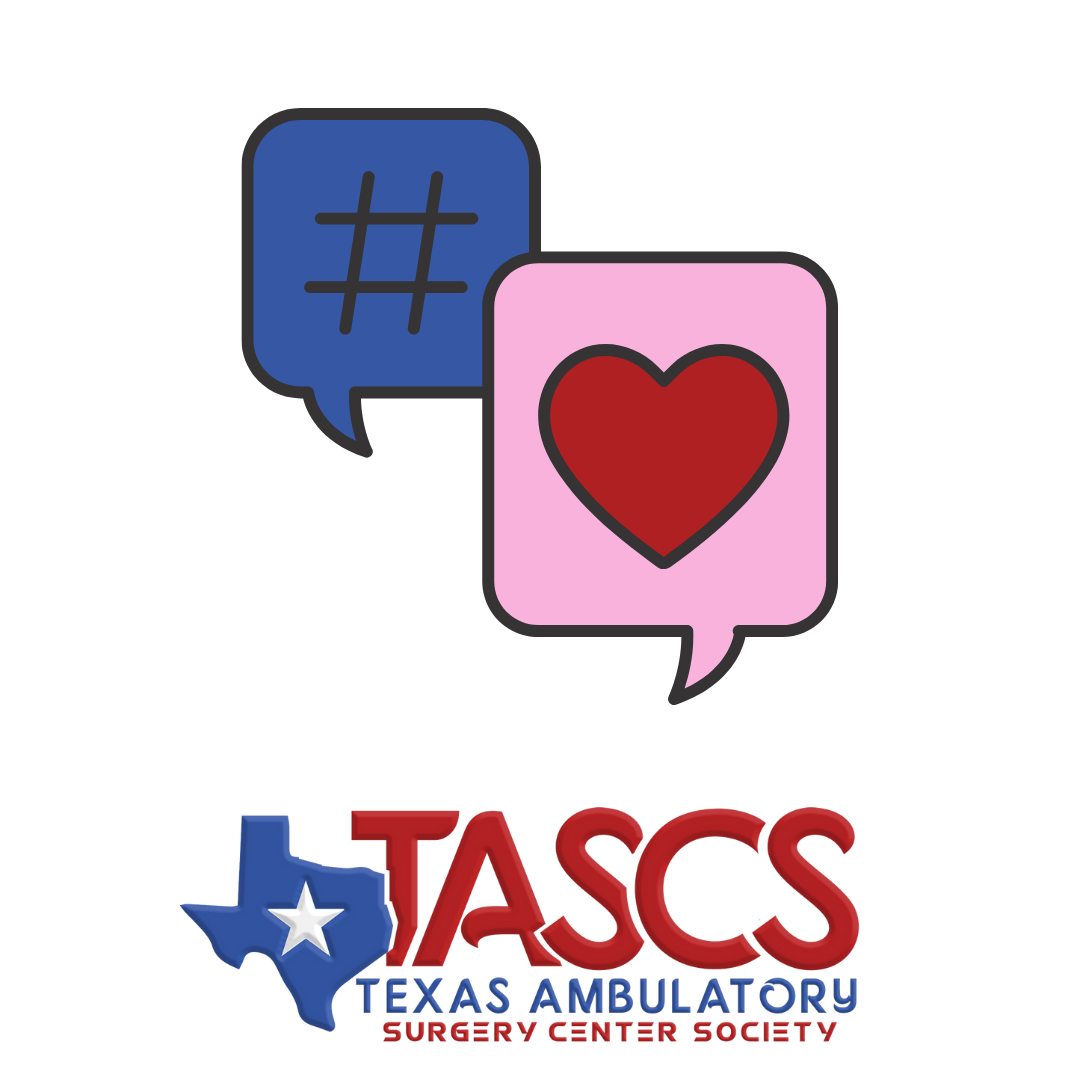
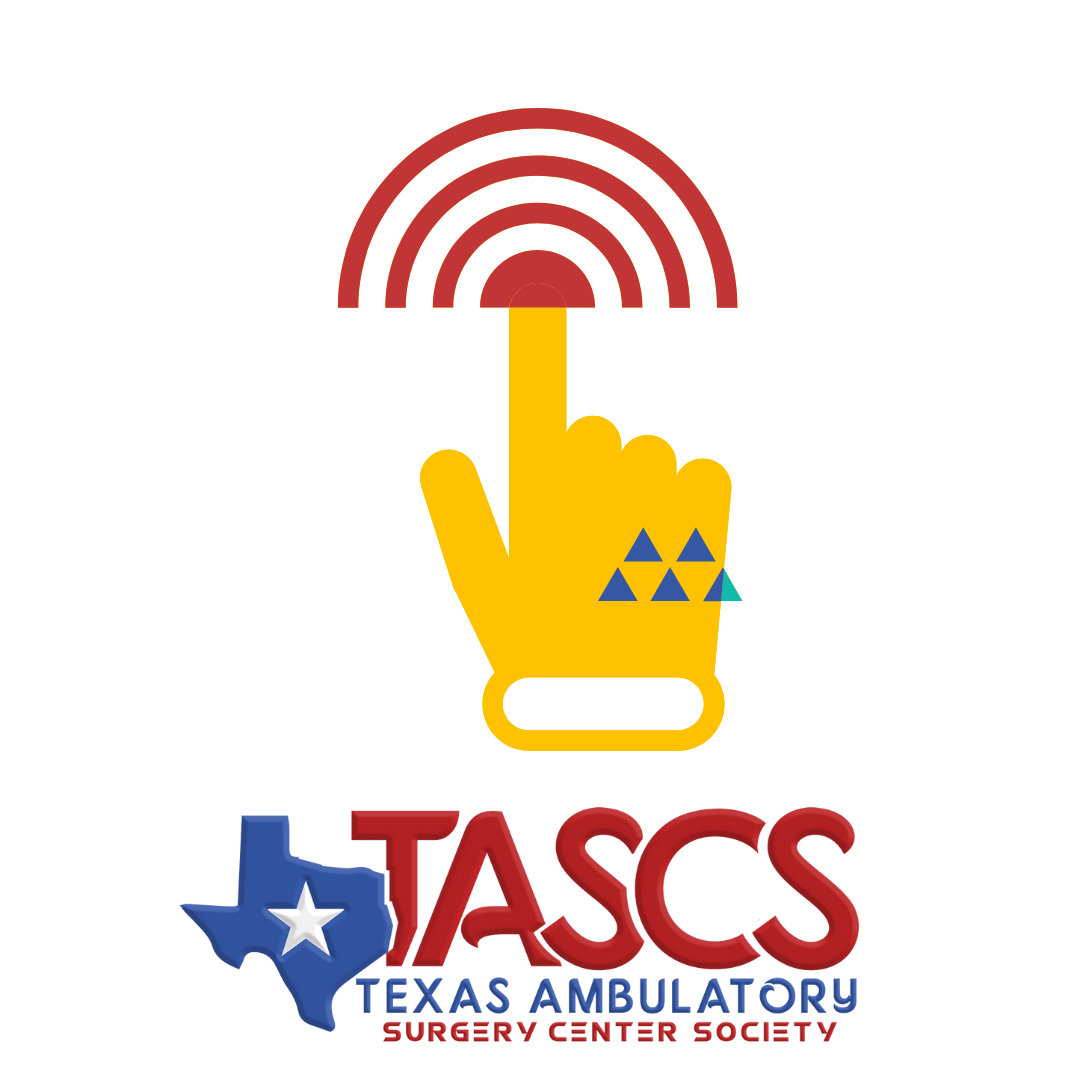 LinkedIn got its official start in 2003, Facebook has been around since 2004, Twitter launched in 2006, and Instagram came about in 2010. Since then, the world has not been the same, as we are more engaged and connected than ever before.
LinkedIn got its official start in 2003, Facebook has been around since 2004, Twitter launched in 2006, and Instagram came about in 2010. Since then, the world has not been the same, as we are more engaged and connected than ever before.
Some turn to these sites to share life updates or to stay in touch with friends and family across the world, while businesses and associations can be enhanced through social media. In fact, there is NO reason a brand SHOULDN’T be on at least one of these platforms.
As the pandemic continues to fluctuate, infection prevention remains at the top of the list in the healthcare industry, and DisinfectWell CEO Rodrigo Zurita spoke to TASCS members on this topic, focusing on surgery centers.
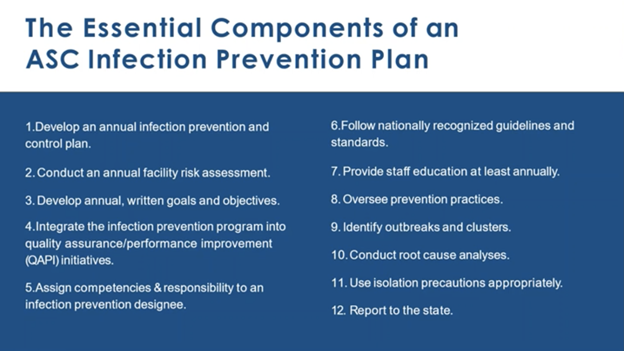
On January 1, 2022, the No Surprises Act (NSA) took effect across the nation after bipartisan approval from Congress in December 2020. This new law establishes several requirements to enhance patient rights and eliminate surprise healthcare billing.
Through the NSA, surgery centers are considered “convening providers,” which means someone must coordinate how to obtain the cost for all providers working on a patient and show that estimate to the patient.